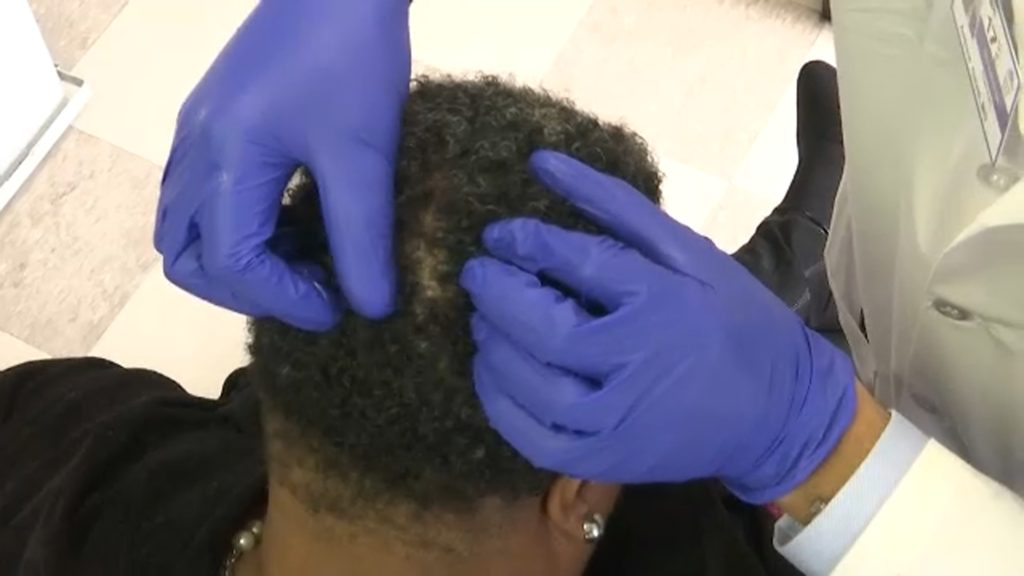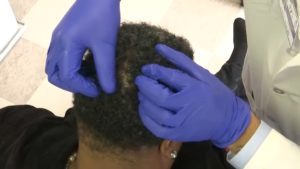Can fibroids cause hair loss? Why African American women with these tumors may need to see a dermatologist for hair loss.
Introduction
Uterine fibroids are non-cancerous growths of uterine muscle and connective tissue (leiomyoma). Like keloids, uterine fibroids are a type of scarring disorder that is more common in people of African descent. Fibroids occur in women of all ethnic backgrounds, however, they tend to be more common and severe in black women. A study published out of Johns Hopkins University also found that a history of uterine fibroids is much more common in women with a type of scarring hair loss, central centrifugal cicatricial alopecia (CCCA). CCCA is the most common cause of hair loss in black women. It is unlikely that the fibroids are causing this hair loss.
Causation v. correlation
Causation means that one thing causes the other. An example of this would be pouring water on a shirt would cause the shirt to be wet. Correlation means that two things share a relationship without one causing the other. An example to this would be people spending more time outside and the increased availability of watermelons in the summer. The relationship between these two events would be a correlation– with a shared cause– warmer weather.
Do fibroids cause hair loss? No.
So, the relationship between fibroids and hair loss is likely a correlation. Both conditions happen more commonly in people with a tendency to excessive scarring responses. In the case of fibroids it is likely a reaction to shedding of the uterine lining with menstruation. With CCCA, it is likely a response to the even minor traumas of hair styling practices.
Related: Alma TED Hair restoration
Why women with fibroids and hair loss should see a dermatologist
CCCA is a type of scarring alopecia, which means that there is a risk that the loss will be permanent. There is even a potential to go bald. When diagnosed and treated early, however, much of the hair can be protected and/or restored. As having fibroids is associated with a risk of CCCA, women with both could potentially save their hair by getting a proper diagnosis and treatment by a board-certified dermatologist with expertise in hair loss.
Conclusion
Women with CCCA are much more likely to have a history of uterine fibroids. Knowledge of the significance of this relationship in one’s medical history can potentially prevent balding if one seeks appropriate care. Got fibroids and hair loss? How about a friend or family member? Call 212-627-1004 or contact us here to make an appointment to be evaluated for scarring alopecia with our hair loss expert, board-certified dermatologist Dr. Dina Strachan.
Read next:
- Got hair loss? Get a proper diagnosis.
- Can seborrheic dermatitis cause hair loss?
- Do I need a scalp biopsy to diagnose why I have hair loss?




